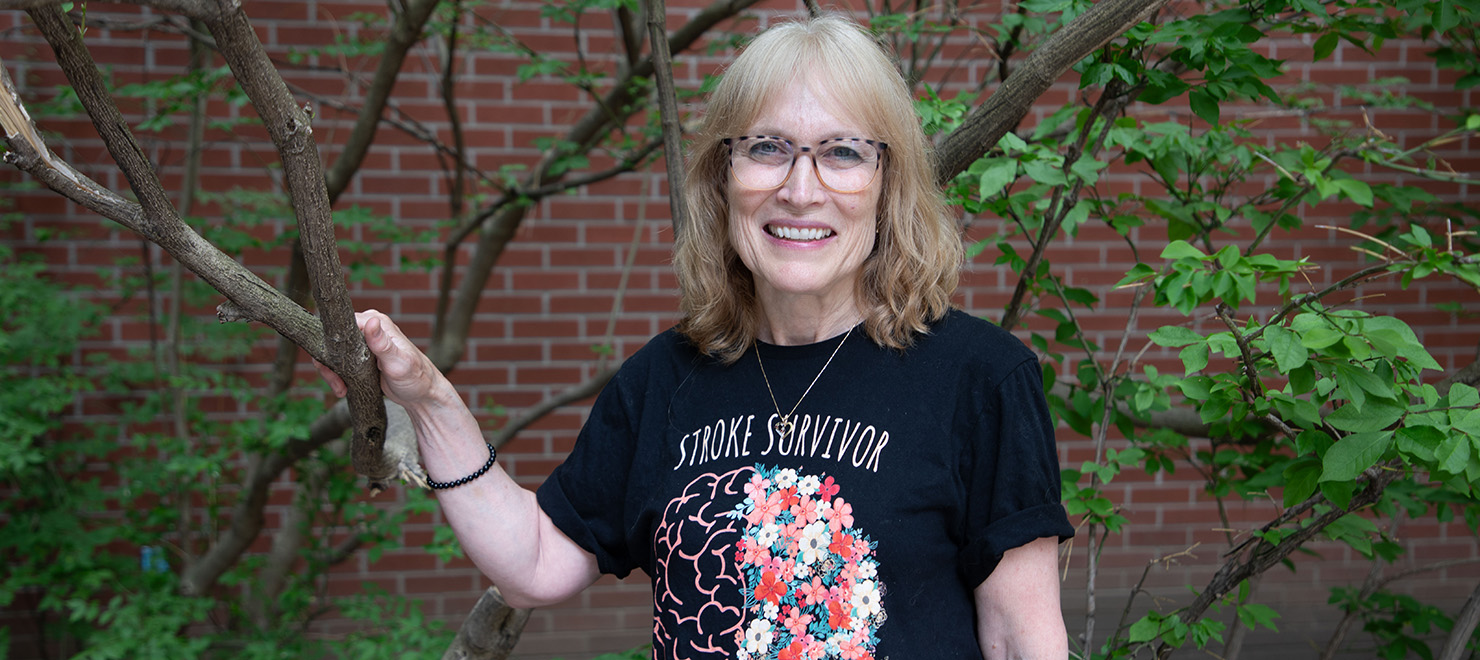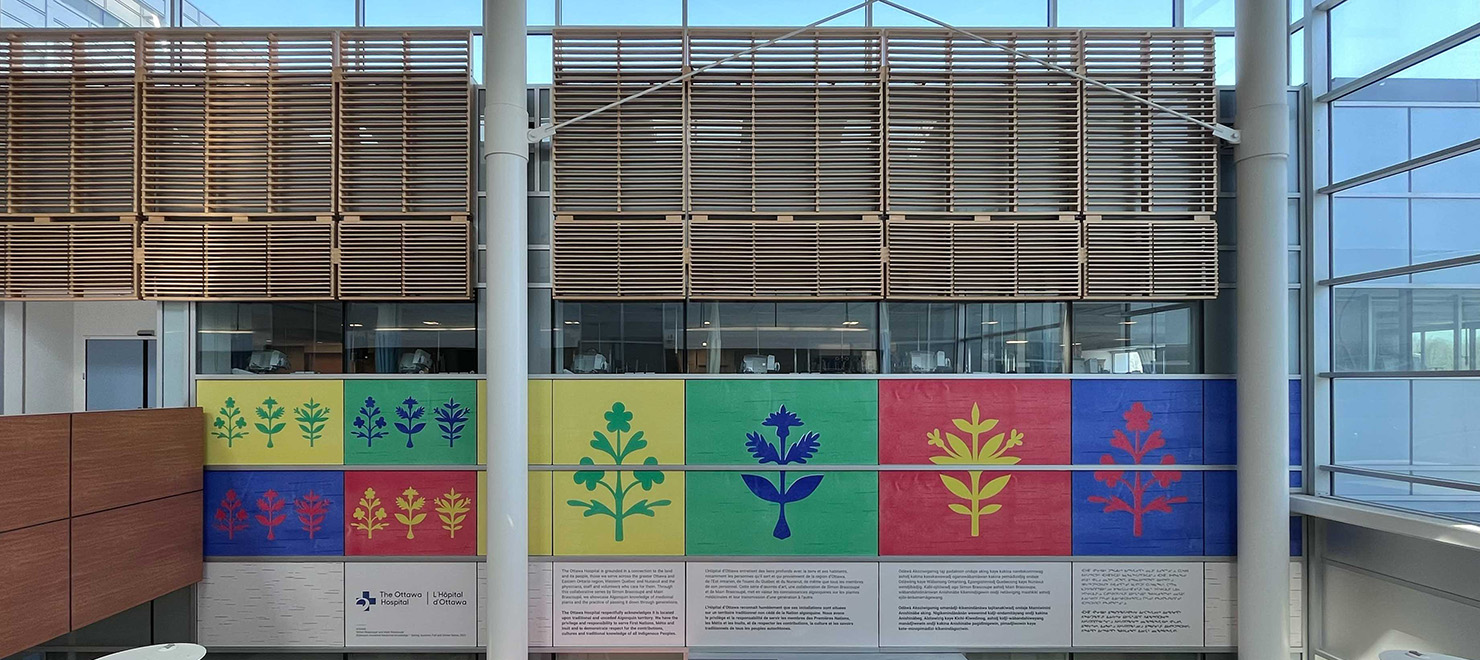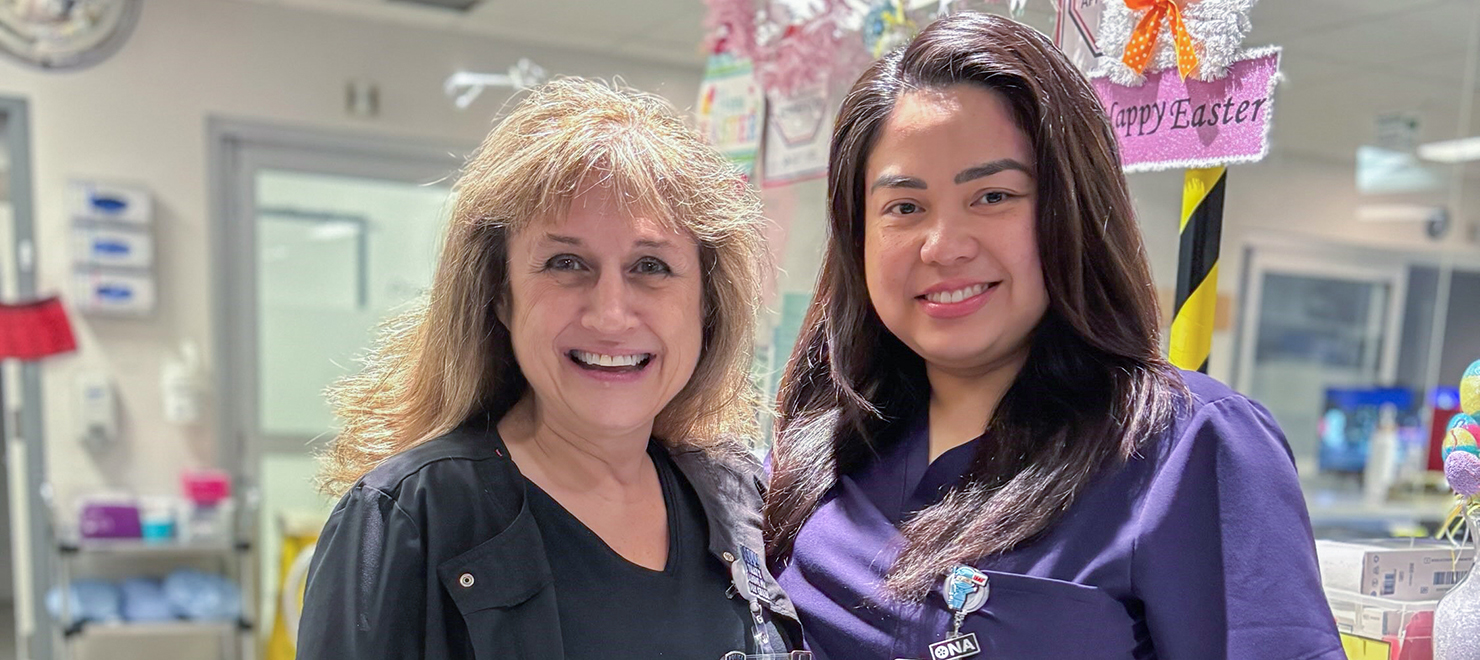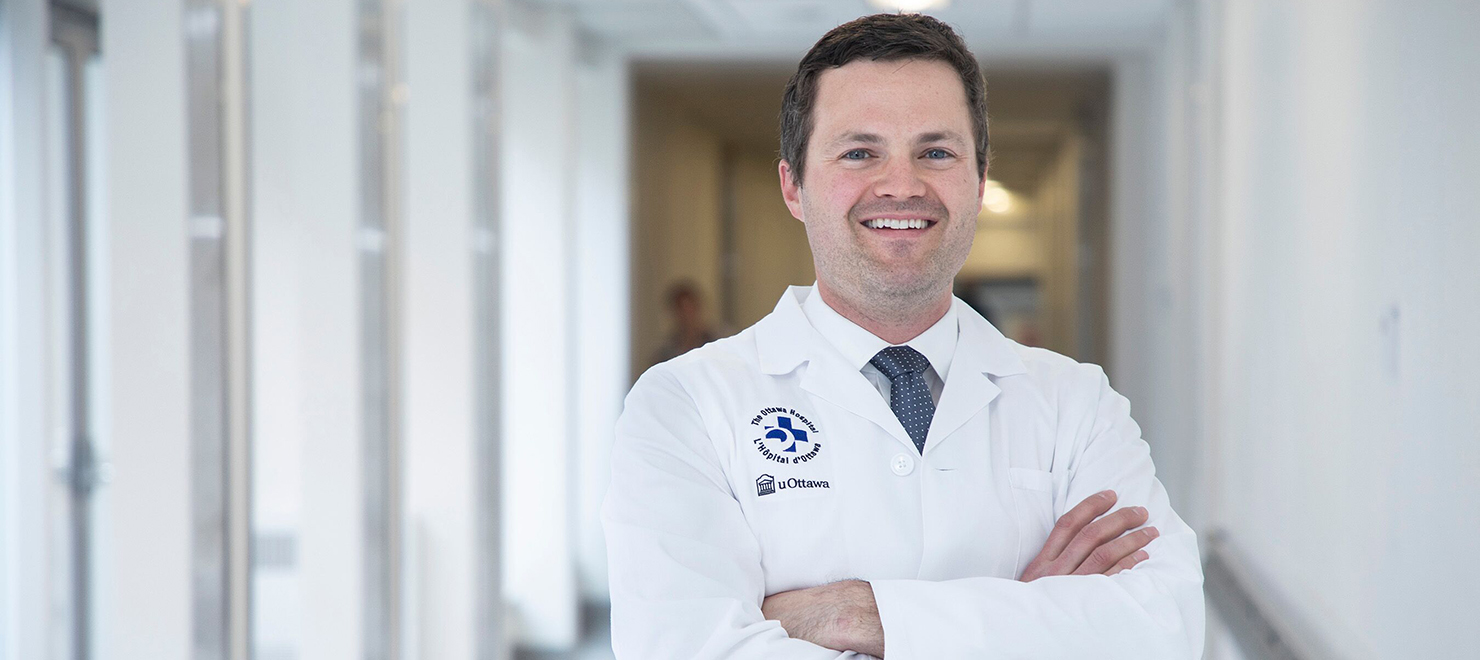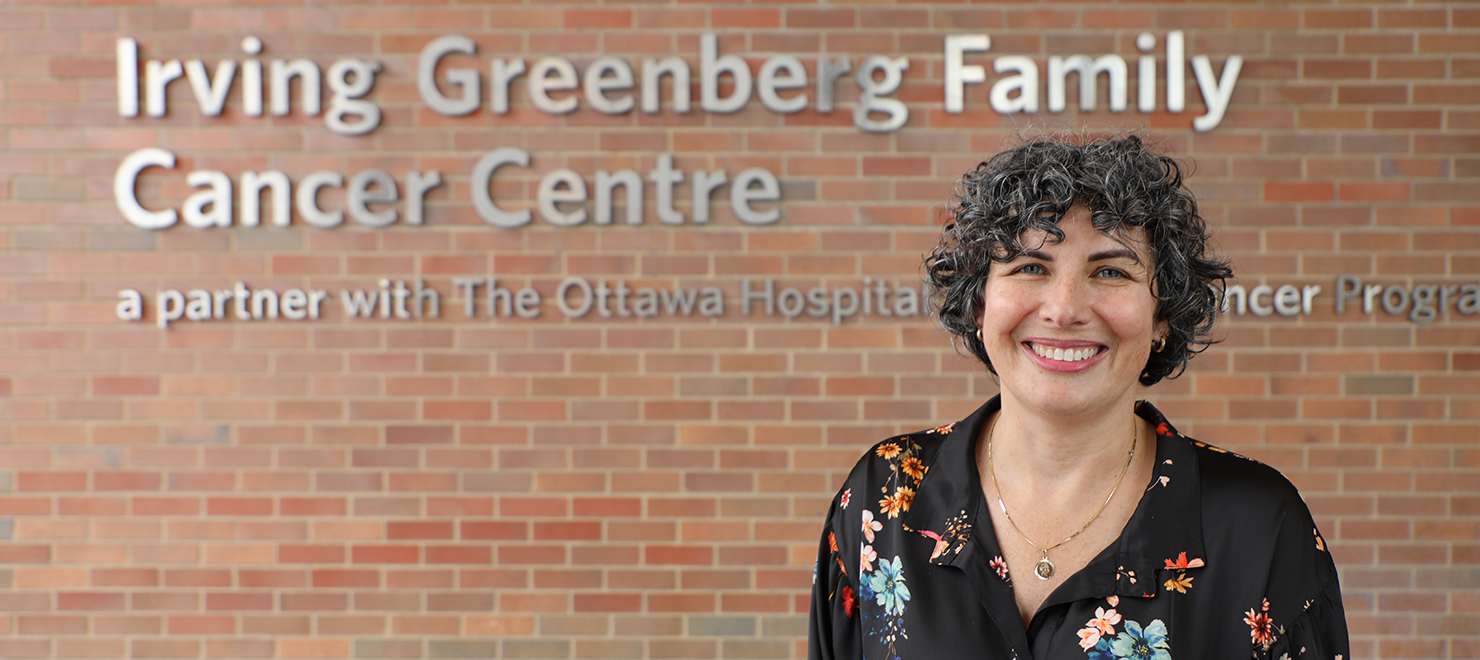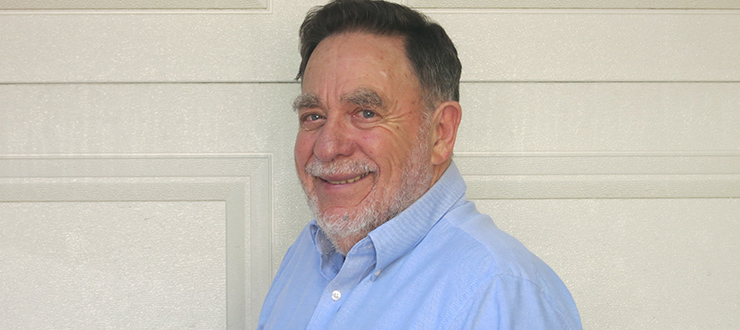
Dr. Les Melamed had a front-row seat on 30 years of research advances during his time on the Ottawa Health Science Network Research Ethics Board.
For 30 years, Dr. Les Melamed read research proposals and asked himself, “If I were a patient, would I want to be part of this study?”
By putting himself in patients’ shoes, he could consider what they would think of a study if it was presented to them. Was it explained in a way they could understand? Were they given enough information to make an informed decision?
“The protection of participants, their privacy and their welfare, is very important,” said Dr. Melamed, who holds a Ph.D. in industrial psychology. “You could see how much the hospital staff on the board cared about the people taking part in these studies.”
During his time volunteering on the Ottawa Health Science Network Research Ethics Board, he helped approve hundreds of research studies at The Ottawa Hospital and the University of Ottawa Heart Institute. He had a front-row seat to many research advances, including new treatments for HIV, world-famous decision rules for the emergency department, and surfactants to help premature babies breathe better.
As a community representative on the board, Dr. Melamed met regularly with other board members, including health-care providers and researchers, to help weigh the benefits and risks of research proposals involving patients or their data. Every study at The Ottawa Hospital and the University of Ottawa goes through this process.
Dr. Melamed has a background in industrial psychology and statistics, and in his professional life, he worked in several marketing and research positions. He brought this combination of training and experience to the hospital.
“I was heavily involved in the design of large-scale studies,” said Dr. Melamed, who recently retired from his volunteer work with the ethics board. “It was a way of making a contribution in a relatively unique way because of my technical skills.”
Dr. Melamed was particularly interested in whether a study was designed to answer the question it set out to answer. For example, the greater the number of patients in a study, the more applicable the results are to the wider community. If you have too few patients in a study, your results may be limited and you may not be able to answer the study question. However, recruiting large numbers patients for studies is often difficult, especially in cases of rare diseases or conditions.
While he jokes that, after 30 years, he still knows nothing about medicine, he had to learn about dozens of different specialities and keep up to date on the latest treatments.
“One of the characteristics of a good research ethics board member is that they like to learn, and Les definitely fit that bill,” said Dr. Saginur, Chair of the board. “Another aspect is not being intimidated by sitting in a room full of doctors and scientists. Les was good at expressing his opinion freely.”
“Research leads to better care,” said Dr. Melamed. “And that hopefully leads to better outcomes for people like me.”
Learn more about taking part in research at The Ottawa Hospital.
Donate to research at The Ottawa Hospital.

Support patient care and research at
The Ottawa Hospital
You might also like…
From survivor to supporter: Peer volunteers bring hope to patients recovering from stroke
Drawing on their own lived experiences as stroke survivors or caregivers, volunteers with March of Dimes Canada’s After Stroke Hospital Peer Connections program offer emotional support to those just beginning their recovery journey. Discover the difference they’re making and learn about how you can request support for a loved one — or become a beacon of hope yourself.
A guide to services at The Ottawa Hospital for Indigenous patients and families
At The Ottawa Hospital, we are committed to providing culturally safe care for First Nation, Inuit and Métis patients and families. We are working with Indigenous partners to identify ways we can make your time in hospital more welcoming. Here are some of the ways we’re doing that now.
Novice nurses and their mentors learn and grow together
Discover how mentorships at The Ottawa Hospital facilitate a smoother transition into practice for novice nurses, allow experienced nurses to hone their leadership skills, and play a crucial role in retaining nurses from both generations.
Do you have a surgery coming up? Here are five “prehab” tips to help you recover faster
You’ve probably heard about rehabilitation, but what about “prehabilitation”? Prehab is all about getting your body and mind in top shape before surgery so you can enjoy a smoother, quicker recovery. Discover five essential prehab strategies from researcher Dr. Daniel McIsaac.
By thinking differently, this research team is improving the lives of people with cancer
Taking a different approach to clinical trials, the REthinking Clinical Trials (REaCT) program aims to answer some of the most important and practical questions that affect both patients with cancer and our health-care system. Find out what sets REaCT apart and makes the program so special to participants like Beth.
“Crash testers”: Preparing our health-care teams for real-life emergencies
Swapping patients for manikins, our Simulation Patient Safety Program recreates medical emergencies right in our hospital, allowing our care teams to “crash test” their responses to cardiac arrests, respiratory failures, mass casualty events and more. Dive into this Q&A for a closer look at how this training program enhances patient safety and quality of care.


 To reset, hold the Ctrl key, then press 0.
To reset, hold the Ctrl key, then press 0.
